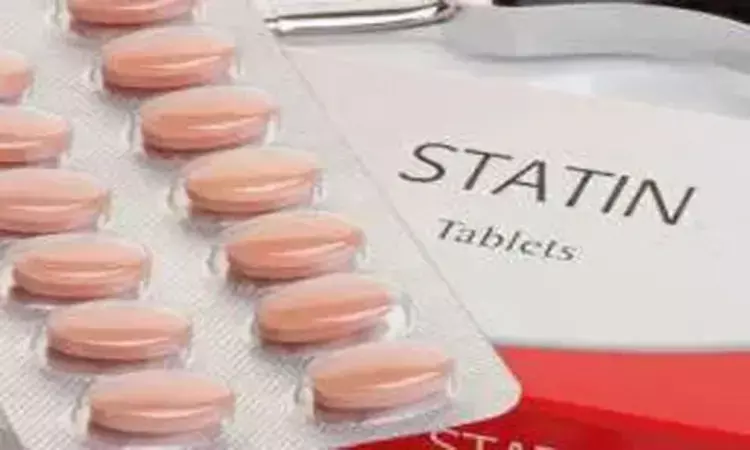- Home
- Medical news & Guidelines
- Anesthesiology
- Cardiology and CTVS
- Critical Care
- Dentistry
- Dermatology
- Diabetes and Endocrinology
- ENT
- Gastroenterology
- Medicine
- Nephrology
- Neurology
- Obstretics-Gynaecology
- Oncology
- Ophthalmology
- Orthopaedics
- Pediatrics-Neonatology
- Psychiatry
- Pulmonology
- Radiology
- Surgery
- Urology
- Laboratory Medicine
- Diet
- Nursing
- Paramedical
- Physiotherapy
- Health news
- Fact Check
- Bone Health Fact Check
- Brain Health Fact Check
- Cancer Related Fact Check
- Child Care Fact Check
- Dental and oral health fact check
- Diabetes and metabolic health fact check
- Diet and Nutrition Fact Check
- Eye and ENT Care Fact Check
- Fitness fact check
- Gut health fact check
- Heart health fact check
- Kidney health fact check
- Medical education fact check
- Men's health fact check
- Respiratory fact check
- Skin and hair care fact check
- Vaccine and Immunization fact check
- Women's health fact check
- AYUSH
- State News
- Andaman and Nicobar Islands
- Andhra Pradesh
- Arunachal Pradesh
- Assam
- Bihar
- Chandigarh
- Chattisgarh
- Dadra and Nagar Haveli
- Daman and Diu
- Delhi
- Goa
- Gujarat
- Haryana
- Himachal Pradesh
- Jammu & Kashmir
- Jharkhand
- Karnataka
- Kerala
- Ladakh
- Lakshadweep
- Madhya Pradesh
- Maharashtra
- Manipur
- Meghalaya
- Mizoram
- Nagaland
- Odisha
- Puducherry
- Punjab
- Rajasthan
- Sikkim
- Tamil Nadu
- Telangana
- Tripura
- Uttar Pradesh
- Uttrakhand
- West Bengal
- Medical Education
- Industry
Is statin-induced diabetogenic effect related to statin type, dose, and initial glycemic status?

Spain: A pooled analysis of 67 studies showed that statin treatment worsened glycemic control (HbA1c) and increased insulin resistance (HOMA-IR) in individuals with abnormal and normal glycemic control. The type or dosage of statin prescribed did not influence the diabetogenic effect.
The findings published in the European Journal of Pharmacology imply that the type, the dose of statins, or initial glycemic control are not linked with the new diabetes onset with statins. The researchers suggest "clinicians should monitor the diabetes development of all patients on statins irrespective of their initial glycemic status."
Since their appearance in the market, prescription rates of statins have risen to become one of the most prescribed medicines worldwide. Their widespread use suggests they are well-tolerated, safe, and have fewer side effects. They have proven efficacy in treating and preventing atherosclerotic cardiovascular disease (ASCVD); despite this, some physicians have grown reluctant to prescribe statins, particularly in people at risk for diabetes development. Some studies have suggested that statins may increase the prevalence of type 2 diabetes.
Against the above background, Laura Alvarez-Jimenez, University of Castilla-La Mancha, Toledo, Spain, and colleagues aimed to update the evidence about statins' diabetogenic effect and determine if the diabetogenic impact depends on the subject's initial glycemic control or the type or dose of statin used.
For this purpose, the researchers searched for randomized-controlled trials reporting the effects of statin therapy on HbA1c and HOMA-IR (homeostatic model insulin resistance) as indexes of diabetes. Studies were classified as testing normal versus people with altered glycemic control having HOMA-IR ≥ 2.15; and HbA1c ≥ 6.5%. Furthermore, studies were separated by statin dosage and type prescribed. Data are presented as mean difference (MD).
The study led to the following findings:
- A total of 67 studies were included in the analysis (>25,000 individuals). In individuals with altered glycemic control, statins increased HbA1c levels (MD 0.21%) and HOMA-IR index (MD 0.31).
- In individuals with normal glycemic control, statin increased HbA1c (MD 1.33%) and HOMA-IR (MD 0.49) compared to the placebo groups.
- The dose or type of statins did not modulate the diabetogenic effect.
To summarize, statins slightly but significantly increased indexes of diabetes in people with adequate or altered glycemic control
"Pravastatin, a hydrophilic statin, reduced rather than raised insulin resistance in people without type 2 diabetes," the researchers wrote. "Against our initial hypothesis, the statin dose did not predict the diabetogenic effect of statins."
"Future studies should investigate not only the type 2 diabetes incidence with statins but also the potential compensatory effect on improving cardiovascular risk to better judge the full pharmacologic effects of statins," they concluded.
Reference:
Alvarez-Jimenez, L., Morales-Palomo, F., Moreno-Cabañas, A., Ortega, J. F., & Mora-Rodríguez, R. (2023). Effects of statin therapy on glycemic control and insulin resistance: A systematic review and meta-analysis. European Journal of Pharmacology, 947, 175672. https://doi.org/10.1016/j.ejphar.2023.175672
Dr Kamal Kant Kohli-MBBS, DTCD- a chest specialist with more than 30 years of practice and a flair for writing clinical articles, Dr Kamal Kant Kohli joined Medical Dialogues as a Chief Editor of Medical News. Besides writing articles, as an editor, he proofreads and verifies all the medical content published on Medical Dialogues including those coming from journals, studies,medical conferences,guidelines etc. Email: drkohli@medicaldialogues.in. Contact no. 011-43720751


